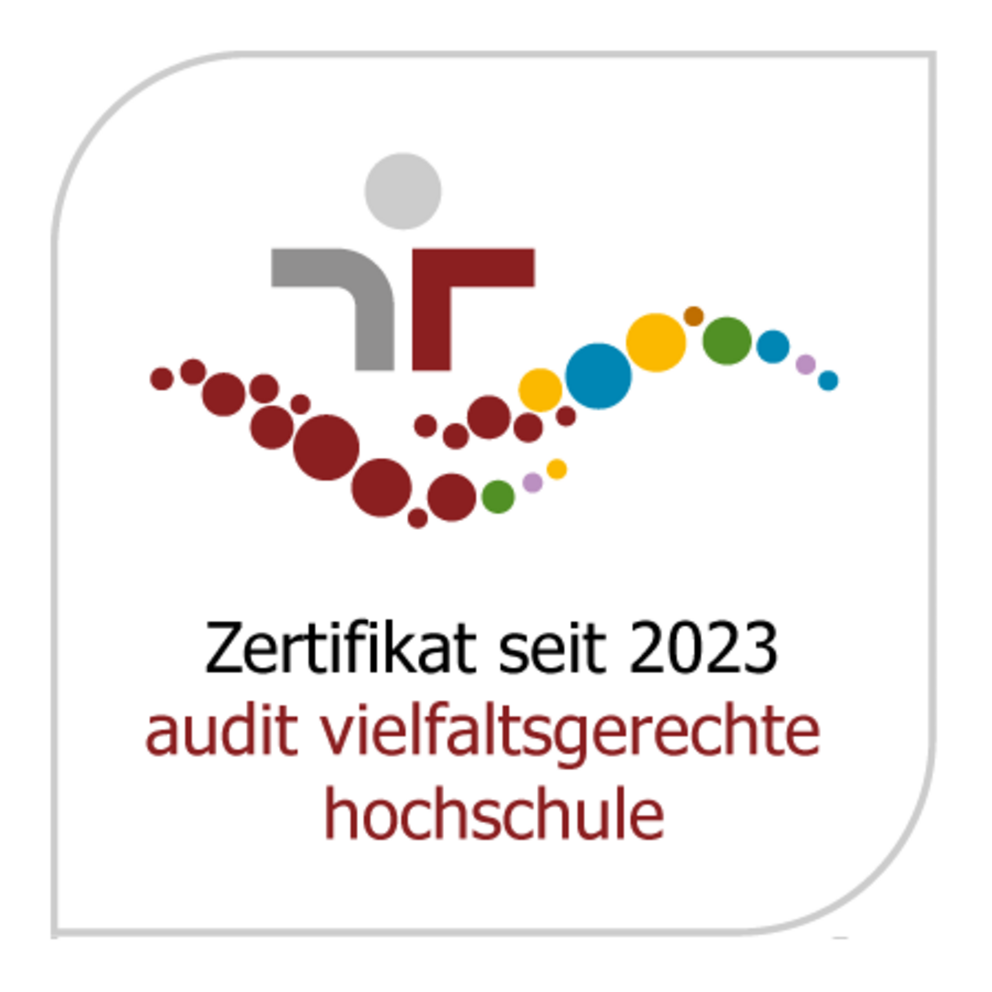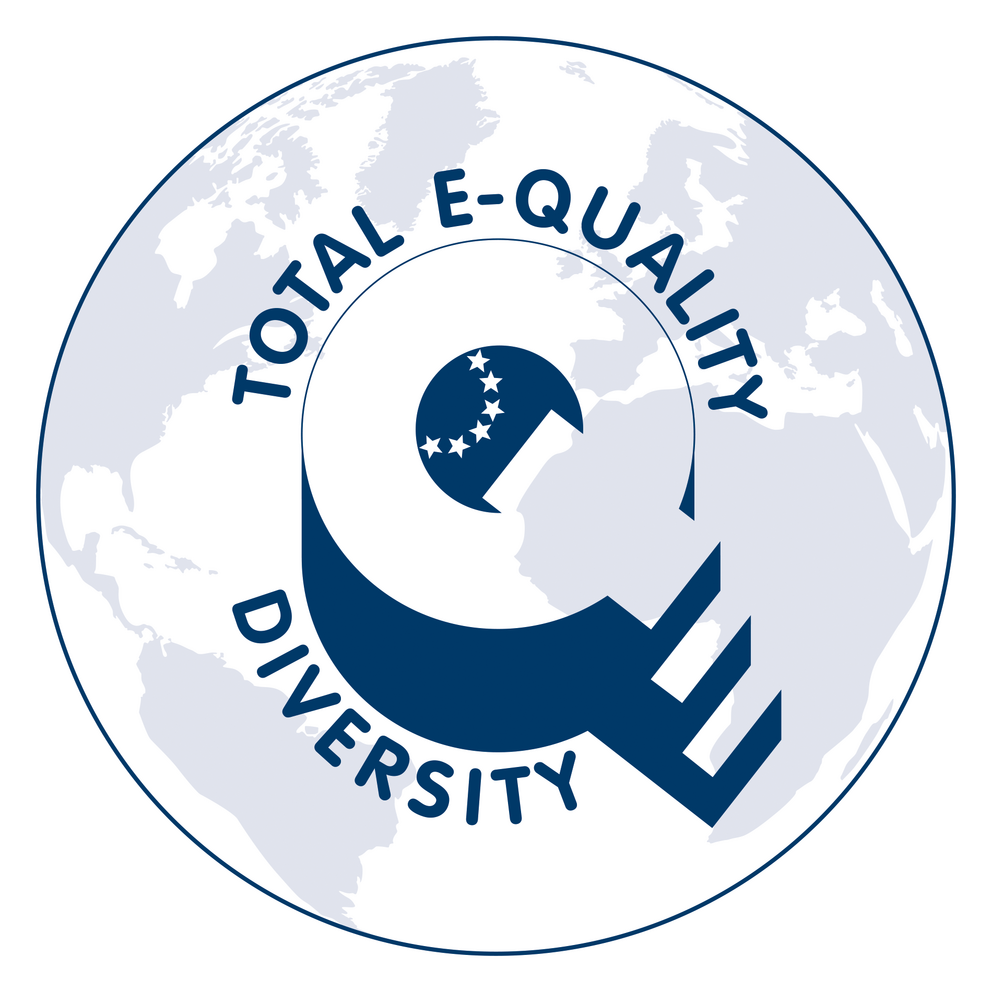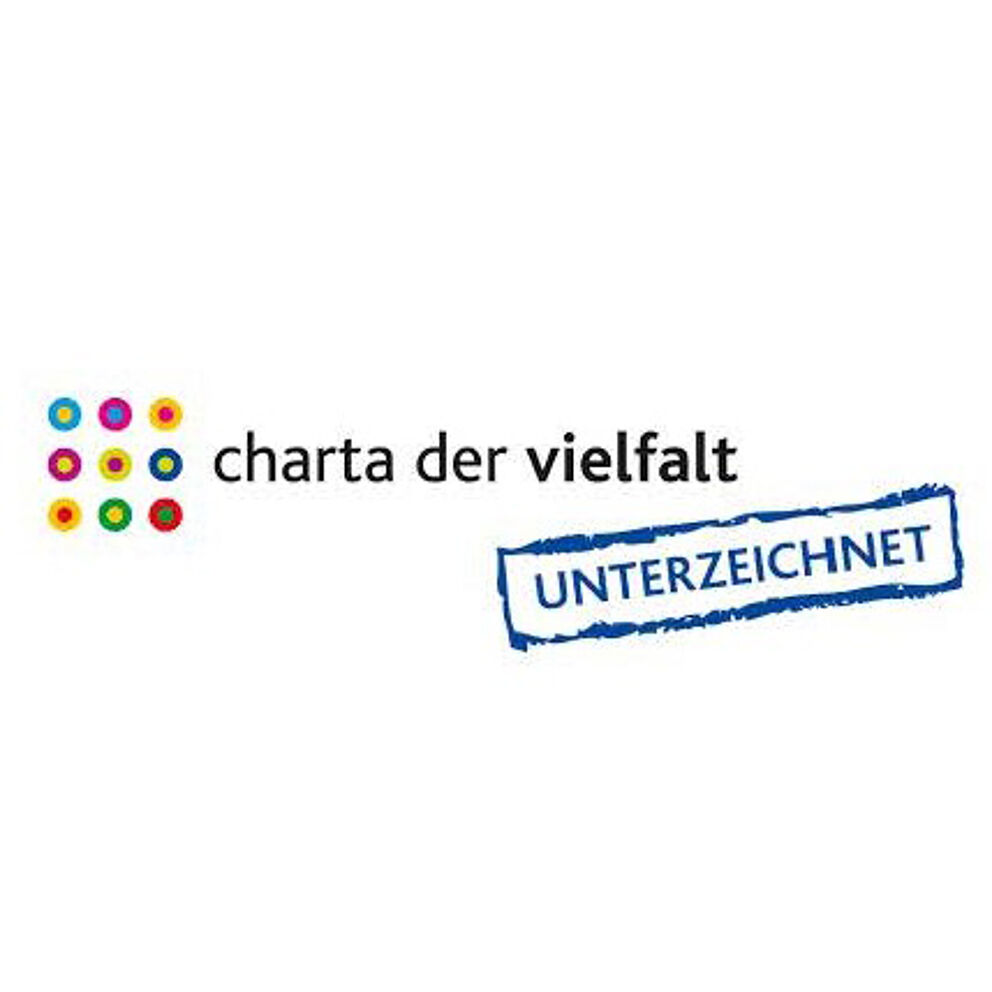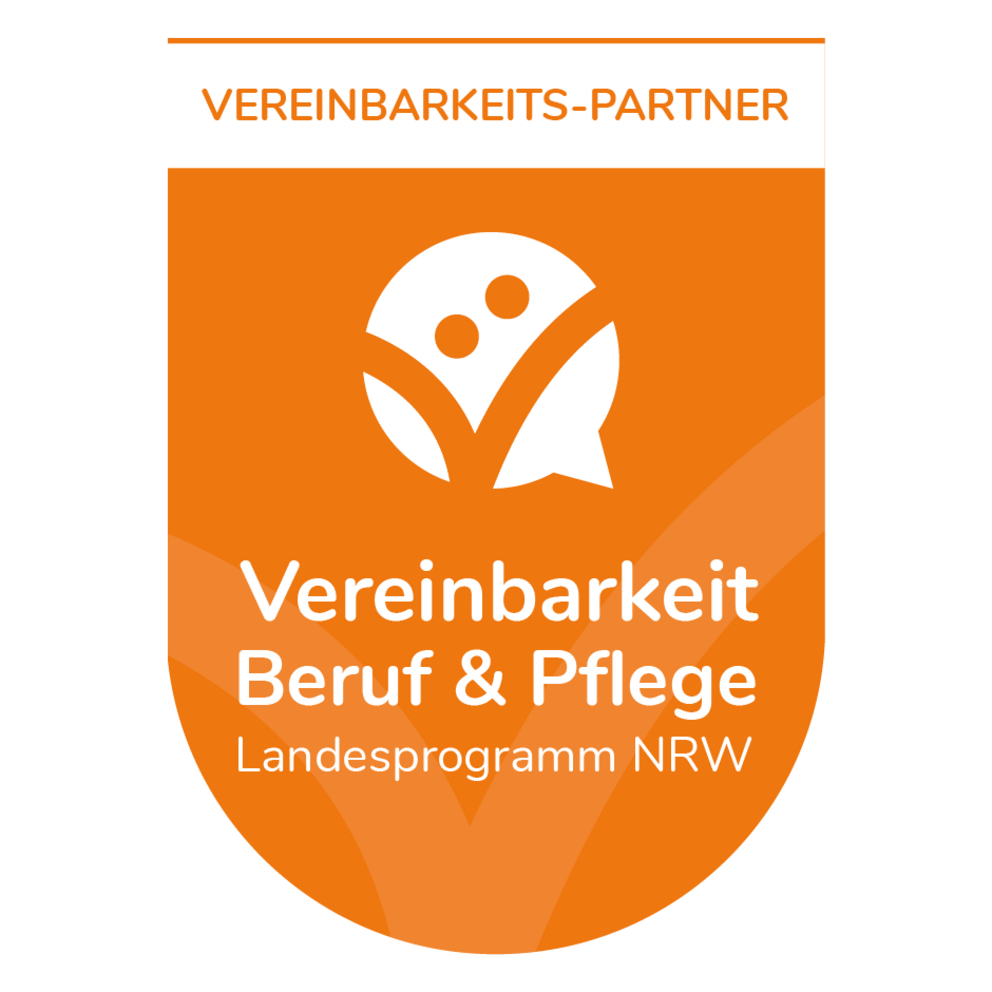Research-orientated equality and diversity standards
The German Research Foundation considers the promotion of equal opportunities for female and male researchers to be an important part of its work. The DFG's "Research-Oriented Standards on Gender Equality" were therefore adopted in 2008. In this document, the DFG members formulated personnel and structural standards for a sustainable gender equality policy in the scientific and higher education landscape.
The "Research-Oriented Standards on Gender Equality" formulate the common goal of significantly increasing the proportion of women at all academic career levels. The so-called cascade model serves as a guiding principle. According to this model, the targets for the proportion of women at each academic career level are determined by the proportion of women at the qualification level directly below.
As part of the agreements on the "Research-Oriented Standards on Gender Equality", the DFG members have undertaken to take a stand on the implementation of the standards and, in particular, to define targets for increasing the representation of women. Paderborn University participated in the "Research-Oriented Standards on Gender Equality" with a statement in 2009. In it, Paderborn University reports on existing measures to implement equal opportunities in research and defines further future measures, particularly with regard to the promotion of young female academics. For example, targeted measures to increase the proportion of women completing doctorates were implemented and firmly established. An interim report was published in 2011 and a final report on the implementation status in 2013.
In 2010, the DFG unanimously categorised Paderborn University's gender equality concept as "exemplary" at the highest implementation stage 4 as part of the implementation of the "research-oriented gender equality standards". Paderborn University's interim report (2011) and final report (2013) on the implementation of the "Research-Oriented Standards on Gender Equality" were also categorised by the DFG at the highest level. The DFG thus certifies that Paderborn University is continuing an already successfully established concept which is supplemented by further innovative approaches.
Paderborn University's participation in the DFG's "Research-Oriented Standards on Gender Equality" was another important step towards achieving equal opportunities in science. Of particular importance is the increased presence of the topic throughout the university, especially through the discussion of the statement and the resulting measures in all fields of the university. All of the new measures formulated in the statement were implemented during the reporting period. During the reporting period, Paderborn University was able to increase its proportion of female professors (including junior professorships) from 23.4% (01/2008) to 29.2% (01/2012). In terms of doctorates, the formulated target of increasing the proportion of women by 5 percentage points was far exceeded in the reporting period. The proportion of female doctorates increased by 10 percentage points from 25.2 % (2008) to 35.6 % (2012). The proportion of women in the entire mid-level faculty also rose significantly in the reporting period from 24.3% (01/2008) to 35.1% (01/2012).
In 2022, the DFG General Assembly decided to expand the aspect of diversity in the text of the "Research-Oriented Standards on Gender Equality" in order to promote the realisation of equal opportunities for all people in science and research - including intersectional participation. In this context, the title was also changed to "Research-oriented equality and diversity standards".
The reporting rounds 2009 - 2013
As part of the DFG's "Research-oriented equality standards", member universities were asked to submit three rounds of reports on the implementation of the equality standards. These were evaluated by a group.
Paderborn University took part in all three rounds of reporting. All three reports were categorised by the DFG in the highest evaluation level. The DFG thus certifies that Paderborn University has a successfully established gender equality concept with innovative approaches.
Procedure from 2013 - 2017
On 3 July 2013, the DFG's General Assembly adopted a package of measures that places a stronger focus on the numerical development of the proportion of women. In particular, the postdoc phase and the appointment process are seen as crucial points in the career path on which further efforts should be focussed. This package of measures includes an annual survey of member universities on the proportion of women at the various academic career stages, which was first launched in 2014.
In 2017, a group appointed by the General Assembly drew up recommendations for the continuation of the research-oriented gender equality standards. The members of the DFG endorsed these at their meeting in July 2017 and renewed their voluntary commitment. In view of the positive developments in gender equality at universities, the reports on the implementation of the standards are to be streamlined. In future, members are to submit qualitative reports on changing priority topics every two to three years.
In addition to continuing the DFG's "Research-Oriented Standards on Gender Equality", the committees approved the development of a qualitative gender equality concept and its implementation by the end of 2018. In developing the gender equality concept, the DFG intends to analyse its sponsorship procedures and instruments for possible structural obstacles and promote gender equality through appropriate measures. In addition, the funding activities are to be examined with regard to career and personnel development as well as the compatibility of career and partnership or family. As initial concrete measures, the committees decided to abolish the twelve-month residency requirement abroad for the Emmy Noether Programme and to introduce a dedicated family allowance for congress and research trips. In addition, women are to be more involved in the review processes in all procedures.
In March 2017, the DFG set a target of 30% female researchers for its decision-making bodies and their subcommittees. The DFG describes this target figure as ambitious because it significantly exceeds the current proportion of female professors of 22%.
Qualitative reporting since 2018
In 2018, the General Assembly of Members of the German Research Foundation (DFG) decided to introduce a qualitative reporting requirement. The aim of the qualitative reporting system is to establish an open exchange of experience between the member institutions on the respective priority topics chosen by them. The inclusion of successful and less successful practical examples, including their framework conditions - based on the idea of learning from one another as colleagues - is considered to be particularly effective. The selected focus topics are intended to encourage the member institutions to (self-)reflect and support their organisational development. Each reporting cycle will include a one-day workshop organised by the DFG and aimed at university management.
For the first reporting cycle 2018-2020, Paderborn University prepared reports on the key topics of "Easing the burden on female academics for committee work" and "Recruitment procedures for attracting female academics". In the second reporting round 2020-2022, reports followed on the key topics of "Increasing the proportion of women in the postdoc phase" and "How universities deal with the topic of diversity".
Information on the current implementation process can be found on the DFG website.

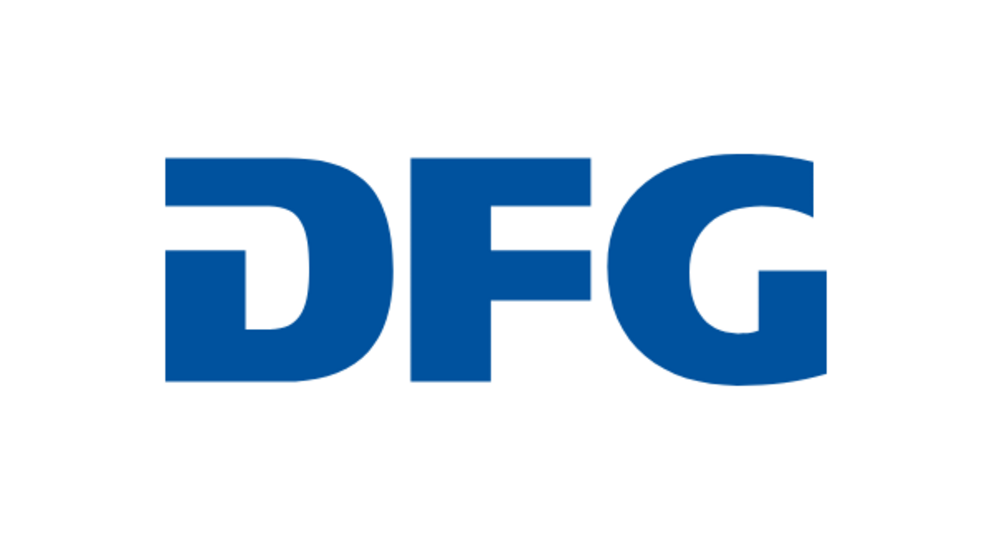
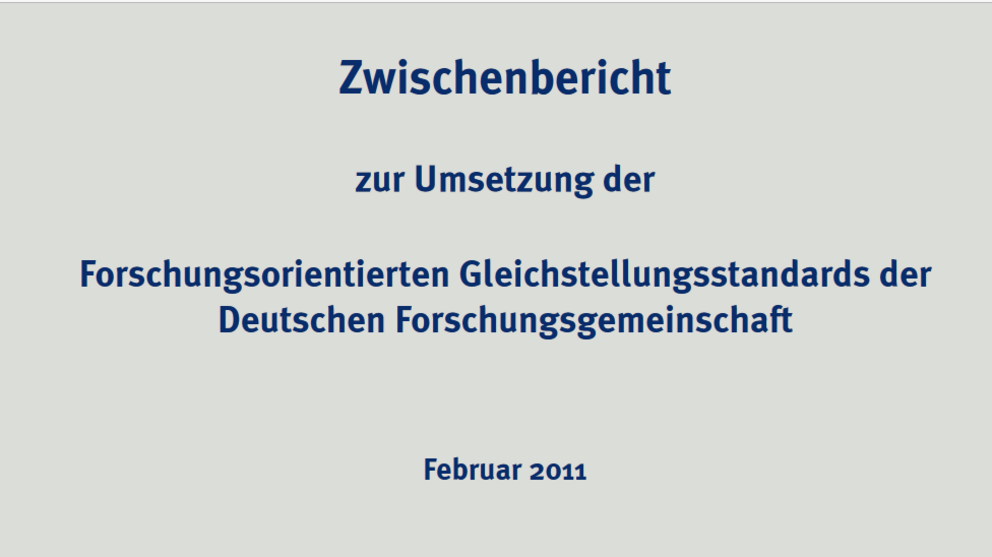
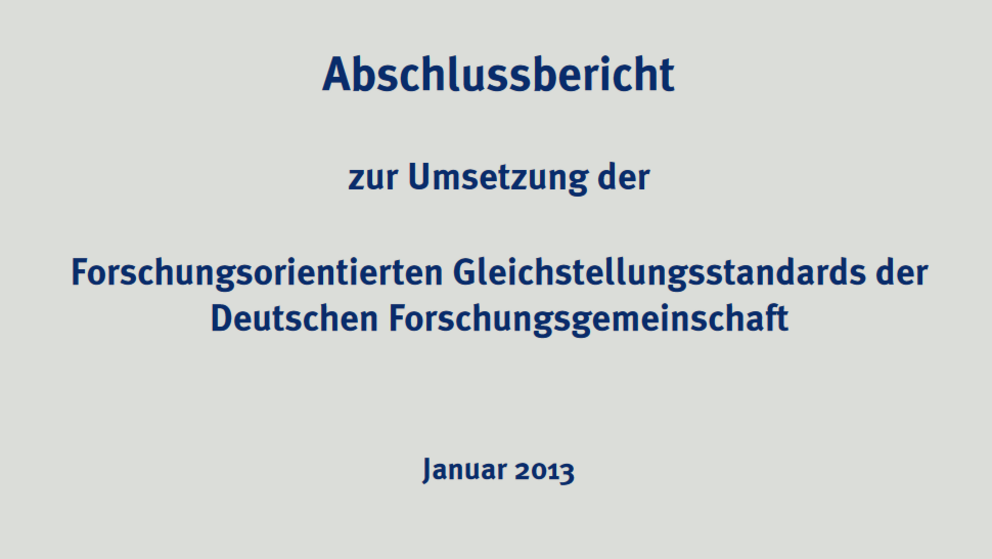
![[Translate to English:] Logo Zertifikat „audit familiengerechte hochschule“](/fileadmin/_processed_/5/a/csm_audit_fgh_rz_2005_DE_RGB_bb18b4e8c0.png)
